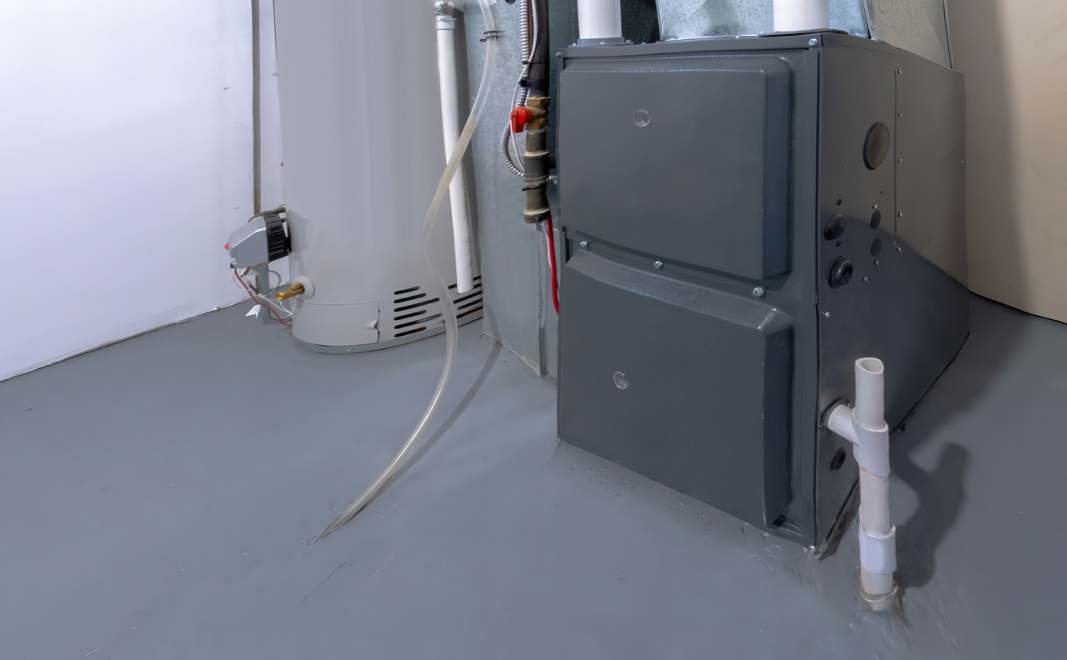Choose the Best Furnace System for Your Home
Are you looking for a new furnace system but not sure what to choose? Here are the different factors to consider when choosing the best system for you and your family.
Single-Stage Furnace
Also known as a single-speed furnace, a single-stage furnace has only one setting for heating operation: high. This means that the furnace will consistently produce the maximum amount of heat, regardless of the temperature outside or in certain areas of the home. In turn, while single-stage furnaces may have the lowest initial cost of the three options, they are also less efficient.
Two-Stage Furnace
A two-stage furnace has two heat output levels: high for cold winter days and low for milder days. Because the low level is sufficient to meet a household’s heating needs 80% of the time, the two-stage unit runs longer and provides a more even heat distribution.
Variable Speed Furnace
Unlike conventional fan motors, variable-speed fan motors operate at different speeds to precisely control the flow of heated or cooled air throughout your home. Better airflow control means a better balance between temperature and humidity.
What Size Furnace Do You Need?
Your furnace is the heart of your HVAC system. It pulls all the air from the air intake through the ducts and into your home. Your furnace is also responsible for providing your home with heat. It’s important to make sure you have the right furnace. So, how do you know what size furnace you need? The honest answer is that it’s impossible to know until a professional inspects your home.
What is a British Thermal Unit?
The British thermal unit (BTU or Btu) is a unit of energy used in the power, steam generation, heating, and air-conditioning industries. Although it is still used ‘unofficially’ in metric English-speaking countries (such as the USA, Canada, and the UK), its use has declined or been replaced in other parts of the world. In scientific contexts, the BTU has largely been replaced by the SI unit of energy, the joule [J].
What is an Annual Fuel Utilization Efficiency Rating?
AFUE stands for Annual Fuel Utilization Efficiency and measures the energy consumed converted into heat (BTU). Regarding AFUE ratings of a system, the higher the rating, the more efficiently your furnace will operate. For example, if your furnace has an AFUE rating of 80%, the system will burn useful heat efficiently while wasting the remaining 20%. A high-efficiency furnace typically has a rating of 90 to 97 percent. A high AFUE will best ensure that your furnace operates efficiently and saves you money on your monthly bill in the long run.
What’s The Difference Between Electric & Gas Furnaces?
A furnace is an expensive investment, so it makes sense that you’ll want to explore a few options and do your research. Both gas and electric furnaces have their benefits, so it’s up to you and our professional advice (depending on the type of home you have) to decide what’s right for your home.
Gas furnaces run on natural gas pumped from the utility grid. When the room temperature drops below the temperature set on the thermostat setting, the furnace ignites a jet of gas inside the combustion chamber to heat the air, which enters the chamber and exits through ducts. The benefit of a gas furnace is that you’ll enjoy consistent, even heating at energy-efficient prices. This helps offset the fact that gas furnaces are more expensive to install initially.
An electric furnace, meanwhile, is smaller and cheaper to install. Instead of a combustion chamber, an electric furnace reduces the fire risk by using electrical elements to heat a series of coils inside an air chamber. Just like a gas furnace, once the air in the chamber is warm, it’s forced through ducts and into your home. The downside is that while an electric oven is initially cheaper, it can be more expensive and less consistent in heating ability.
How Can I Prepare for the Heating Installation?
While you should never attempt to install a furnace yourself, there are certainly a few ways you can help! The first and most helpful thing you can do for yourself and our team is to educate yourself on the equipment. With so many furnace manufacturers, it’s essential to understand how your furnace should work to meet the needs of your home or business. You’ll need to do your research to figure out what you need in terms of features and efficiency.
You’ll also need to prepare the installation site so our experienced contractors can do their job effectively. Generally, items should be cleared at least six feet away from where your furnace is installed.
Why Choose Professionals from Kozel LLC
Installation of furnaces is a complex procedure that requires deep technical knowledge and practical experience from the master. The gas furnace installers of the Kozel LLC company have highly qualified employees on their staff who are qualified to install various types of furnaces. Contact the service today!
FAQ
Furnace installation prices vary from home to home and depend on several unique factors. Contact Kozel LLC managers, and they will help you calculate the cost.
The average life expectancy of most furnaces and heating systems is about 15 to 20 years.
Replace your oil or gas furnace as it approaches the end of its life expectancy. On average, furnace life expectancy ranges from 15 to 30 years.




